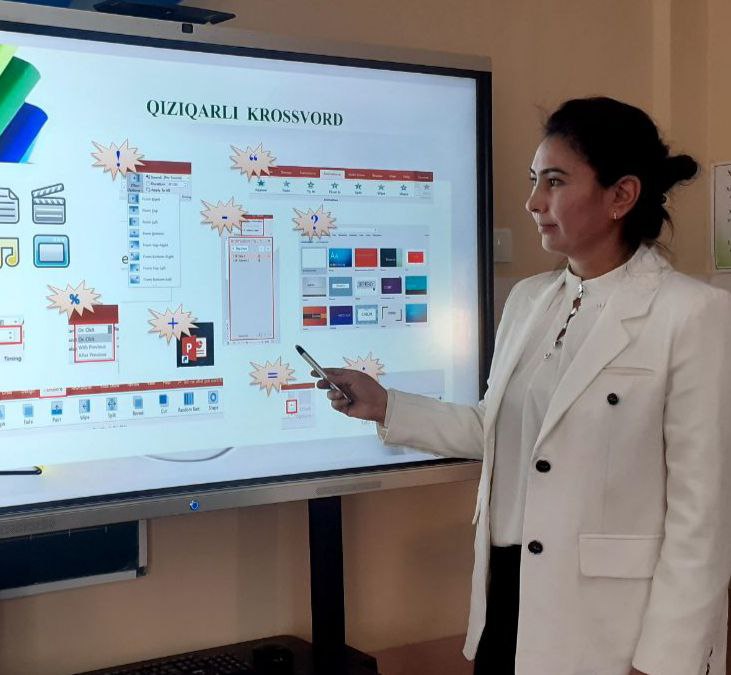
ARTIFICIAL INTELLIGENCE IN EDUCATION: A NEW ERA BEGINS
Introduction
In today’s modern world, technology is evolving rapidly. One of the most advanced and promising areas is Artificial Intelligence (AI). AI refers to systems that can mimic human thinking, learning, and decision-making processes. Today, this technology is being widely used in many fields, including education, which is one of the most essential areas for development.
Main Part
What is Artificial Intelligence and how does it impact education?
Artificial Intelligence is a system of algorithms capable of analyzing large amounts of data, learning from it, and making data-driven decisions. In education, AI helps to identify students’ individual needs, provide personalized learning materials, and monitor academic progress effectively.
Achievements of AI in Education:
1. Personalized learning – AI allows the creation of lessons tailored to each student’s level and learning pace.
2. Automated assessment and analysis – Tests and assignments can be evaluated automatically, reducing teachers’ workload.
3. Virtual teachers and assistants – AI-based platforms and chatbots provide quick responses to students’ questions.
4. Support for students with disabilities – AI technologies help students with visual, hearing, or mobility impairments by offering accessible learning tools.
Advantages of AI Technologies
• Increases the effectiveness of education;
• Encourages independent learning among students;
• Gives teachers more time for creative and strategic teaching;
• Speeds up and systematizes the learning process.
Challenges and Considerations
However, implementing AI in education is not without its difficulties:
– Lack of adequate technical infrastructure;
– Low digital literacy among some educators;
– Data privacy and security concerns;
– Risk of losing the human touch in teaching.
Therefore, before integrating AI into the education system, proper preparation and training of qualified professionals are essential.
Conclusion
Artificial Intelligence is a groundbreaking technology that has launched a new era in education. It enables the learning process to be more efficient, student-centered, and interactive. With the right approach, AI can become an invaluable assistant not only for students but also for teachers. There is no doubt that AI will become an integral part of future education systems.
Namangan District, School No. 22, Computer Science Teacher — Gulnora Rakhimjonovna Khomidova.

Pingback: Synchronized Chaos Mid-July 2025: Trapped in History | SYNCHRONIZED CHAOS
While you may be right I think that in the U.S. at least, AI will be used to more effectively doctrinate students into far right ideology. For the fascist regime that is now in power these tools will be used to control, coerce, and terrorize the population like nothing we have seen before. With the rise of the survelliance, we have already lost our privacy, and to a large extent, our freedom. These AI tools are just another step in the direction of total oppression.